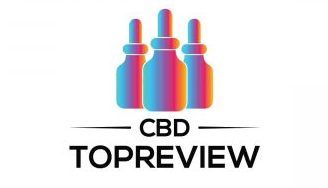02 August 2023. Authored by Madison Baker. Expected time required for a perusal: 8 minutes.
Cbd Withdrawal Symptoms Are a Myth Perpetuated by Outdated Perspectives on Cannabinoid Consumption.
Don’t believe the hype about CBD withdrawal symptoms. It’s a myth and nothing more. Despite the old-school approach to using cannabis, which suggests that it’s addictive and leaves you with unwanted side effects, CBD is much different than what most people have been led to believe.
The truth is, studies have shown that CBD is not an addictive substance. So, if you’re worried about CBD withdrawals, don’t be. The only side effects you may experience from discontinuing your CBD use may be mild and inconsequential, such as a slight headache or some mild discomfort.
Research Has Consistently Shown That Cbd Is Not Addictive and Does Not Produce Psychoactive Effects.
Recent research has provided a ton of proof regarding the lack of psychoactive effects found in CBD, as well as its non-addictive nature. The psychoactive effects often associated with marijuana are caused by THC (tetrahydrocannabinol), which is not present in CBD products that are derived from industrial hemp plants.
What this means is that there are no psychoactive effects associated with taking CBD, which is why it’s often used by those who want to stay clear-headed and focused throughout the day. Additionally, CBD has been found to be non-addictive, even after prolonged and consistent use. Essentially, CBD is just another nutrient that your body needs, one that helps to enhance your overall health and increase your well-being. So go ahead and continue your use of CBD without any worries.
If you’re interested in learning more about CBD, check out this article on CBD shampoo benefits.
Any Perceived Withdrawal Symptoms May Actually Be Attributed to the Cessation of Other Habits or Lifestyle Factors.
It’s important to understand that any “withdrawal” symptoms you may experience after discontinuing CBD use may actually be a result of other factors or habits, such as caffeine or sugar intake, lack of sleep, or even stress levels. Many people have reported feeling increased anxiety or physical discomfort after discontinuing their CBD use, but these symptoms could be related to other lifestyle factors and not necessarily the CBD itself.
This is why it’s essential to pay attention to your overall health and wellness habits, including diet, exercise, and stress management techniques, to ensure that you’re adequately caring for your body and mind. Consulting with a medical professional can also help determine the root cause of any discomfort you may experience when discontinuing CBD use, especially if you have pre-existing conditions that could be exacerbated by lifestyle changes.
If you want to learn more about how CBD affects your furry friends, check out this article on CBD causing diarrhea in dogs.
Seeking Medical Advice Can Help Alleviate Any Discomfort during the Transition Away from Cbd Use.
If you find that you’re experiencing negative symptoms after halting your CBD use, it may be worthwhile to seek medical advice. An experienced healthcare provider can help identify the root cause of any discomfort and provide you with proper guidance regarding any necessary lifestyle adjustments. Additionally, a medical professional can assist in developing a long-term plan for managing your overall health and wellness goals.
Remember, CBD is generally considered safe and non-addictive, but it’s important to monitor your body and be aware of any changes you may experience. If you do decide to discontinue CBD use, do so gradually, and always consult with a medical professional before making any significant changes to your daily routine.
CBD Withdrawal Symptoms are Rare and Usually Inconsequential.
Contrary to what some people might believe, breaking free from CBD is not going to leave you laying in bed with a migraine. In fact, most people don’t experience any withdrawal symptoms at all. However, on very rare occasions, you might feel a bit off for a day or two as your body readjusts. But don’t worry, this is uncommon and short-lived. It’s nothing compared to the struggles of quitting smoking or stopping caffeine.
In any case, if you have been taking CBD on a daily basis for an extended period of time, it might be a good idea to gradually taper off your dose rather than stopping abruptly. This will give your body time to adjust and reduce the likelihood of any potential side effects. Keep in mind that the effects of CBD are cumulative and it’s not uncommon for users to feel its benefits even after taking a break for a few days.
Wondering how you can integrate CBD into your daily life? Look no further than CBD logo ideas which offer a range of products that cater to all of your needs, from tinctures and gummies to lotions and bath bombs!
CBD is Not Addictive and Can Actually Help with Reducing Dependence on Harmful Substances.
If you’re concerned that CBD use might lead to addiction, you can rest easy. CBD is not addictive, and in fact, can help people overcome addiction to harmful substances. CBD works by interacting with the body’s endocannabinoid system, which is responsible for regulating mood, pain, appetite, and sleep. By stimulating the endocannabinoid system, CBD can help to reduce the cravings and anxiety associated with withdrawal from addictive substances such as opioids or nicotine.
In addition to helping with addiction, CBD has been shown to have numerous health benefits, including reducing inflammation, relieving pain, and improving sleep. With so many benefits to offer, it’s no wonder that CBD has gained popularity in recent years. Just remember that CBD is not a cure-all and should not be treated as such. Always consult with your doctor before trying any new substance, especially if you’re taking medication or have a preexisting condition.
Madison Baker is a freelance writer from Denver, CO. She is passionate about writing about travel, culture, and adventure.








